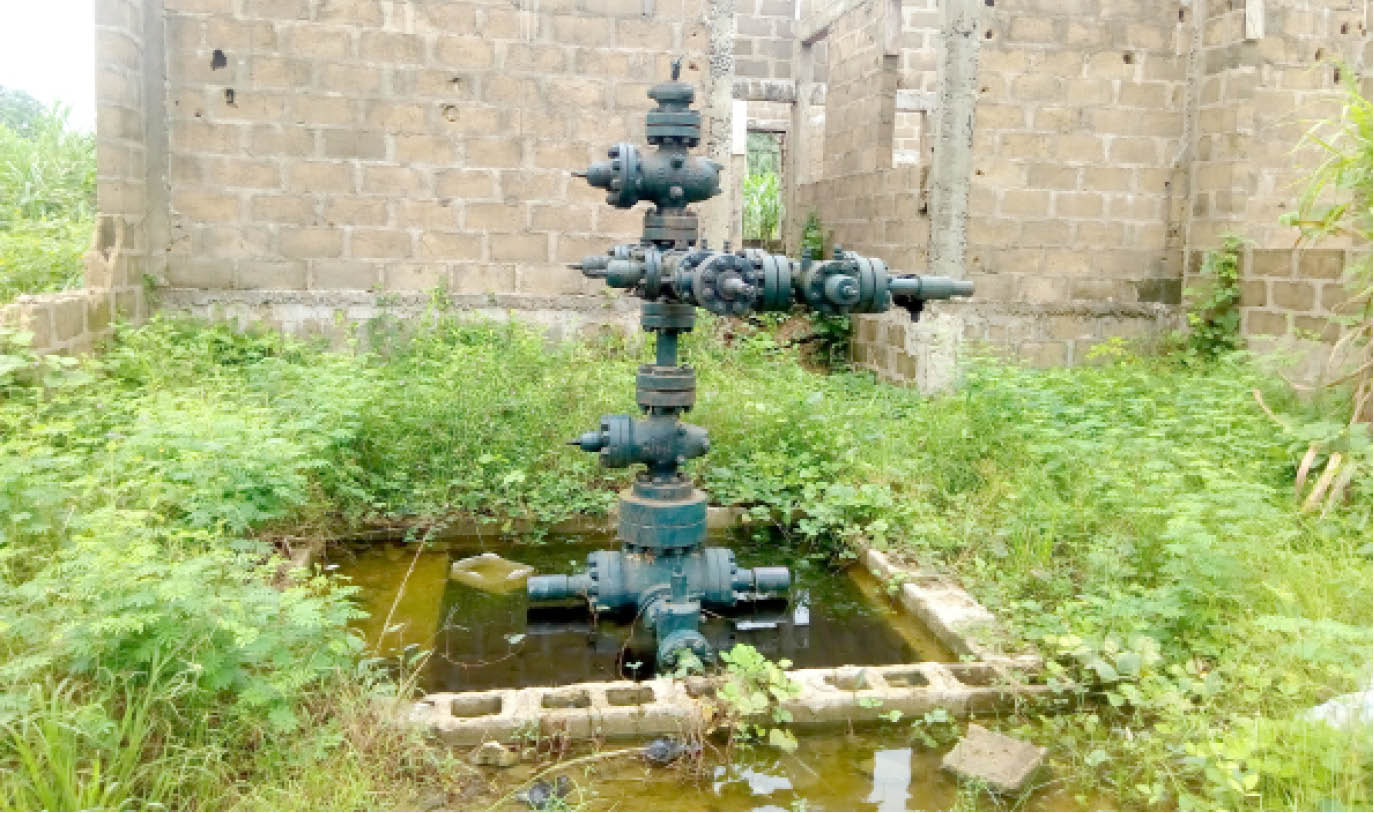Inside Oloibiri: Community where oil drilling began in Nigeria
About 61 years ago, when the first oil well was discovered in Oloibiri community and the subsequent commencement of the drilling business, indigenes and dwellers might have thought their many years of underdevelopment and lack of social amenities were over. Oloibiri is a small town in Ogbia Local Government Area of Bayelsa State, and the […]

The first oil well in Nigeria, discovered in 1958 at Oloibiri community, in Bayelsa State
About 61 years ago, when the first oil well was discovered in Oloibiri community and the subsequent commencement of the drilling business, indigenes and dwellers might have thought their many years of underdevelopment and lack of social amenities were over.
Oloibiri is a small town in Ogbia Local Government Area of Bayelsa State, and the first ever oil well was discovered in the community in 1958. Subsequently, pipeline was laid from the community to Bonny in River State for Shell oil terminal, but up till today, the community is among the least developed in the Niger Delta region.
Years down the line, it’s been a tale of woes. Environmental pollution and general neglect are the daily complaints of the people, just as signs of poverty are glaring.
Recently, during the visit of the Bayelsa State Oil and Environmental Commission (BSOEC), the cry of the people were so alarming as almost every resident pleaded with both the state and federal governments to come to their rescue.
A community leader in Oloibiri, Chief Dennis Ovoh-Adogu, in an emotion-laden voice, accused the oil companies of using the revenue from the oil in their area to develop other places in the country while the community where oil was first drilled in Nigeria is totally neglected.
He said: “Our children are dying from pollution on daily basis, we are suffering from different kinds of ailments, our rivers are polluted, the fishermen go fishing throughout the night and come back with nothing because the fishes are all dead.
“No federal government presence is felt here, despite the abundance of oil in this community, which is why we are planning a protest against the government and all the operating oil companies in the area,” he said.
At the moment, Oloibiri cannot boast of good power supply, potable water and other social amenities, despite the fact that multinational oil companies are still drilling oil and gas in the area. The residents are worried that despite their huge contribution to the nation’s economy, the Federal Government has not deemed it necessary to consider developing Oloibiri.
Facilities at the only secondary school in the area are in a sorry state; the children have to trek a long distance to Ogbia town to attend either primary or secondary schools.
In March 2001, then President Olusegun Obasanjo during his state visit to Bayelsa, laid a foundation stone for the construction of Oloibiri Millennium Landmark Projects, which is supposed to house an Oil and Gas Research Institute, but sadly, the project has not gone beyond foundation level as at today.
Other oil producing communities in the state have also joined voices in calling for government’s attention, especially in the area of infrastructural development. They described as fraudulent the Global Memorandum of Understanding (GMOU) entered with international oil companies (IOCs) operating in their areas.
His Royal Majesty, the Ibedaowei of Ekpetiama Kingdom, King Bubaraye Dakolo, while speaking during the stakeholders’ forum organized by the Bayelsa State Oil and Environmental Commission, described the GMoUs with oil companies as fallacy.
“The GMoUs are fallacies. The oil companies deceive the communities with these documents and still will not clean up the environment when there is a spill or even provide social amenities for the people. The GMOU has never worked in any community.”
“When I was nominated by my community as one of the negotiators of the GMoU, I thought we will sit down and discuss. But, unfortunately, the SPDC (Shell Petroleum Development Company) already prepared a document for us to read and sign. They said we should not ask anything other than what was in the document.
“We were not allowed to note our problems because they claim to know it more than us. Since after the discussion, nothing has been done by the SPDC and our people are suffering.
“Our youths are jobless and now resorting to militancy and other vices that are inimical to society. Poverty has really bitten us. The night life we used to enjoy through gathering together for folktales can no longer be done because of the fear of attack by our own people.”
Otuasega Community Development Committee chairman, Comrade Confidence Moses, noted that the oil companies, particularly SPDC, have caused more harm to them than good, adding that the youths engage in bunkering and militancy due to the poverty in their communities.
“We live under leaking roofs and in mud houses. We even bathe in polluted river because we lack basic amenities. Our land is no more rich for farming because of the exploration and spills.
“Our due privileges should be given to us. Our people are not employed in the companies even as cleaners and drivers. There are also no opportunities for scholarship from the companies.”
A woman leader in Otuabagi community, Mrs. George Mitema Souye, said there is an ongoing oil spillage in the community, claiming that women in affected communities suffer miscarriage due to the effect of oil exploration and pollution, while young ladies get to menopause early due to these problems.
Already, the chairman of Bayelsa State Oil and Environmental Commission (BSOEC), who is the Archbishop of York, Dr. John Sentamu, has promised the commission’s committment to finding lasting solutions to the environmental challenges facing oil producing communities in the state.
According to him, most of the complaints were not new, but sadly the old problems have not gone away. He disclosed that the people’s grievances would be reflected in the commission’s report and followed up with serious advocacy.
